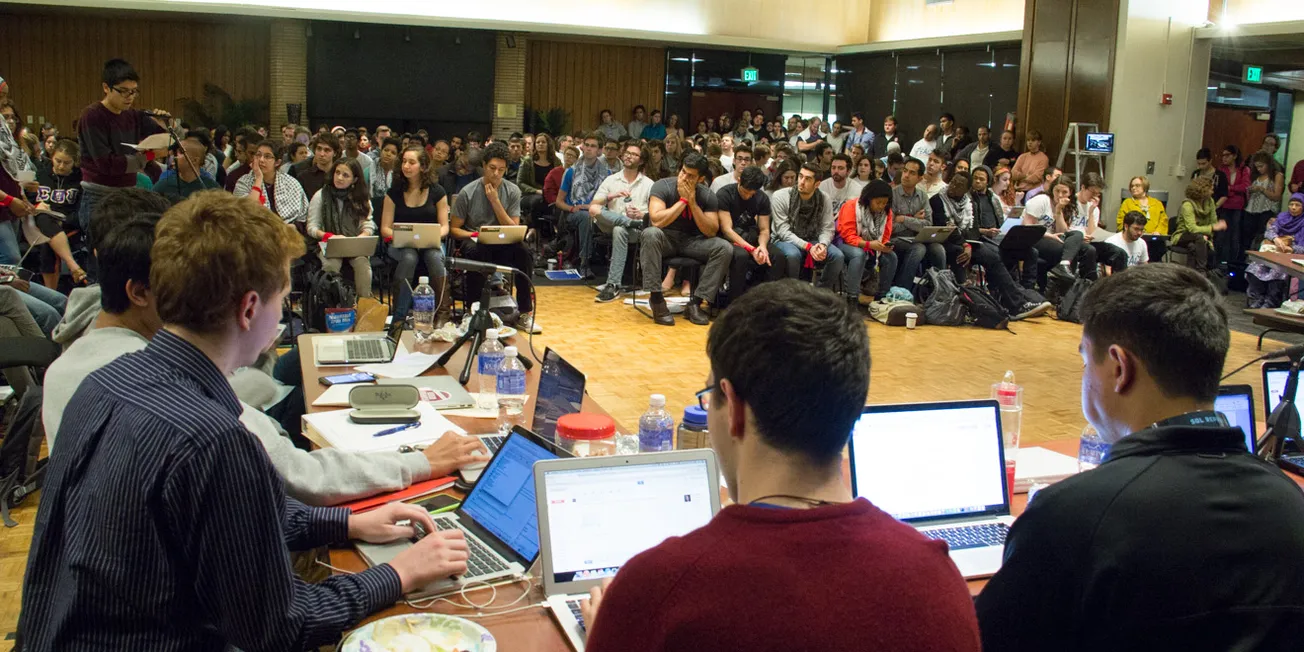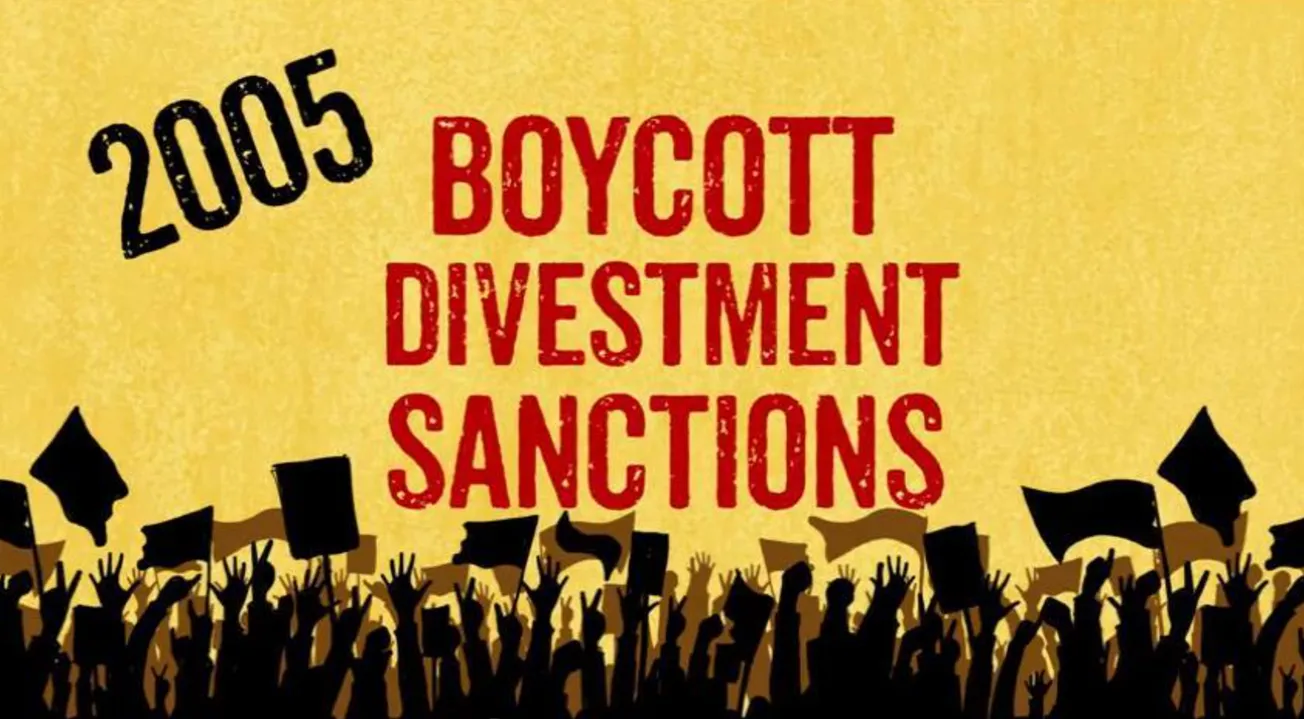Table of Contents
On February 10, hundreds of students crammed into the Oak Lounge in Tresidder Memorial Student Union for the biggest, most contentious ASSU Senate hearing of the year. For nearly four hours, those students watched the debate on divestment from some companies doing business in Israel, the issue University President John Hennessy has called the most divisive issue he has seen on campus in thirty years.
Amongst that division, one message came across loud and clear in that first Israel divestment meeting: the culture we now have here at Stanford favors looking good over doing good. Even when we know that a perfectly manicured public image cannot survive long in the Information Age—when social media can topple governments as easily as it can immortalize llamas and dresses—we still put more effort into trying to appear to do what is right than actually doing what is right. We put more effort into massaging, veiling, and filtering the truth than showing the truth itself.
This strange (and scary) fact about our cultural focus showed itself clearly at multiple points in the Senate’s tense, at times tear-filled hearing, mostly through arguments made in support of the divestment cause.
Opponents of divestment had argued from the beginning that the resolution backed by Stanford Out of Occupied Palestine (SOOP) had intimate connections to the larger, notoriously anti-Semitic Boycott, Divestment, and Sanctions (BDS) movement; the Coalition for Peace asserted that, if divestment had passed that night, the headline broadcast around the world would be one of BDS victory. So starting with Senator John-Lancaster Finley ‘16, pro-divestment speakers worked to counter those assertions by arguing that the ASSU Senate and the Stanford administration could “control the media” and how media outlets would report on a vote to divest. In other words, Stanford could paint the story of #StanfordDivest as a movement focused simply on the issue of human rights rather than the bigotry of BDS.
Of course, spinning the story in that manner is both factually and technologically impossible.
Just before the ASSU Senate furtively passed SOOP’s resolution in a *de facto *secret meeting on divestment on February 17, Senator Andrew Aude ‘16 pointed this out to the rest of the body. After all, despite an eleventh-hour amendment adding a single clause to the contrary, SOOP seems to have drawn inspiration from the BDS movement and continually included information about BDS in the information it distributed prior to the February 10 meeting. Even by then, it had become too late to separate SOOP from BDS in the media, as reports from the week between the Senate’s divestment meetings came to show.
Even if SOOP had never uttered the acronym BDS, the ASSU Senate and Stanford both (thankfully) lack enough control to mold a story so intentionally simply because we live in the Information Age; eventually, the power of the Internet can erode the most varnished façade. We live in an age when enterprising student journalists can root around on the Internet and find out just how nepotistic ResEd can be when trying to take away student freedoms. We live in an age when a single student can administer a simple poll on a beloved campus restaurant’s removal that reveals tendentious problems in R&DE’s official survey. We live in an age when a survivor of sexual assault can turn a hashtag into a stinging indictment of our university’s policies on and handling of sexual assault. And, of course, we live in an age when a guerrilla newsletter can expose scandal after scandal that the University has tried to keep under wraps.
But ultimately, there’s something more problematic about media control than this impossibility of controlling a story once it hits the web: so many people who spoke at the February 10 divestment meeting not only took that control for granted, but also as positive.
Like Stanford itself, those who saw media control in that way seemed particularly concerned with their public image—or, at least, the public image of the #StanfordDivest movement. Our university has become especially obsessed with its façade this year, as evidenced by its recent interactions with Title IX. Following the explosion of bad press that followed Leah Francis’ #StandWithLeah campaign last year, the University responded first by creating the Title IX office. Given that the Office of Sexual Assault & Relationship Abuse Education & Response (or SARA) had already existed on campus for years, as has the legally required position of Title IX Coordinator, the creation of this new office could be read as nothing more than the University wanting a positive headline. The University then proceeded to suspend SAE’s housing (on the basis of Title IX) after an investigation that lasted more than twice as long as Title IX itself allows. Such a move that only makes sense if the University started the investigation with the goal of finding SAE guilty and making an example out of them rather than the goal of finding the truth.
Ultimately, truth is the victim when people care more about looking good than doing good. With the University, *supporting *in actuality any survivors of sexual assault seems to have become secondary to appearing supportive. With SOOP’s resolution, addressing in actuality the concerns of students who felt personally threatened by the resolution seemed to have become secondary to appearing to address those concerns. Similarly, actually distancing themselves from the BDS movement seemed to have become secondary to asserting that they had done so. Many of the students in the room that Tuesday night felt like divestment would create a hostile environment for Jews here at Stanford, as it has at UC Davis, because of BDS. And yet, the focus of those wanting to ‘control the story’ lay instead on making a throwaway line two clauses from the end of the resolution seem like a grand gesture of understanding.
We need to hold ourselves to a higher standard as a University. Let’s reorganize our priorities to put doing what is right before doing what makes us look in the right. We all have made mistakes, done things that others don’t like, or said things that got us into trouble in the past; rather than bury them or pretend to fix them, we need to actually fix them. We need to own up.









